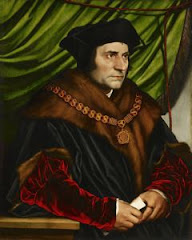
A few weeks ago I walked into Our Saviour Church on 38th and Park, which is quite frankly the most beautiful church I know. Whilst I prayed I (conspicuously) took a gaping stare at the faithful around me, hoping for some implicit cues. Perhaps the most important thing I noticed was their devout silence, which is surprisingly quite lacking in Catholic churches nowadays. Now as a lifelong practicing Catholic, I had never had this particular experience of unexpectedness prior to a Mass; I both dreaded the beginning and longed for it. Better to get going with it, enough waiting.
This Mass was unlike any other I had previously experienced; it was the Tridentine Mass, the Usus Antiquior, the Extraordinary Form of the Roman Rite. And this was the first time I had actually attended it. Friends of mine had raved about it, recommended it to me, and extolled everything about this older usage. And though I took a liking to it as well as other traditional elements of the Faith, I had never had the gumption or the courage to plunge in and start attending the Tridentine Mass. When I learned that Fr. Rutler would be celebrating a Tridentine Mass, I saw the Hand of Providence directing me to go.
I followed. And thank goodness. As an habitue of Renaissance polyphony, I could not have picked a better mass to attend, as the music selected was Palestrina's Missa O Rex Gloriae, sung by the Schola Cantorum of St. Mary Church in Norwalk, CT, and the Sleepy Hollow Schola Canorum from Sleepy Hollow, NY. I remember wiping my eyes during the Kyrie, and as the sublime libations poured down on me, the splash sent my soul soaring up to the heavens, a truly inimitable experience of transcendence.
What regal splendour, what music and circumstance and dignity befitting a king, and not just any king, but the King of Heaven and Earth Himself. It was this prayer that had been the inspiration for centuries of art and architecture, music and poetry, literature and cathedrals, the prayer for which faithful and Catholics and atheists alike fought side-by-side to save in the aftermath of Vatican II. No one truly understands the usus antiquior, but even a taste is a good start. I have tasted it and have begun to imbibe its sweet savour, now as a server at St. Agnes at 43rd Street. And not a moment too soon; it's always nice to have a clearer glimpse of Heaven.
This Mass was unlike any other I had previously experienced; it was the Tridentine Mass, the Usus Antiquior, the Extraordinary Form of the Roman Rite. And this was the first time I had actually attended it. Friends of mine had raved about it, recommended it to me, and extolled everything about this older usage. And though I took a liking to it as well as other traditional elements of the Faith, I had never had the gumption or the courage to plunge in and start attending the Tridentine Mass. When I learned that Fr. Rutler would be celebrating a Tridentine Mass, I saw the Hand of Providence directing me to go.
I followed. And thank goodness. As an habitue of Renaissance polyphony, I could not have picked a better mass to attend, as the music selected was Palestrina's Missa O Rex Gloriae, sung by the Schola Cantorum of St. Mary Church in Norwalk, CT, and the Sleepy Hollow Schola Canorum from Sleepy Hollow, NY. I remember wiping my eyes during the Kyrie, and as the sublime libations poured down on me, the splash sent my soul soaring up to the heavens, a truly inimitable experience of transcendence.
What regal splendour, what music and circumstance and dignity befitting a king, and not just any king, but the King of Heaven and Earth Himself. It was this prayer that had been the inspiration for centuries of art and architecture, music and poetry, literature and cathedrals, the prayer for which faithful and Catholics and atheists alike fought side-by-side to save in the aftermath of Vatican II. No one truly understands the usus antiquior, but even a taste is a good start. I have tasted it and have begun to imbibe its sweet savour, now as a server at St. Agnes at 43rd Street. And not a moment too soon; it's always nice to have a clearer glimpse of Heaven.




